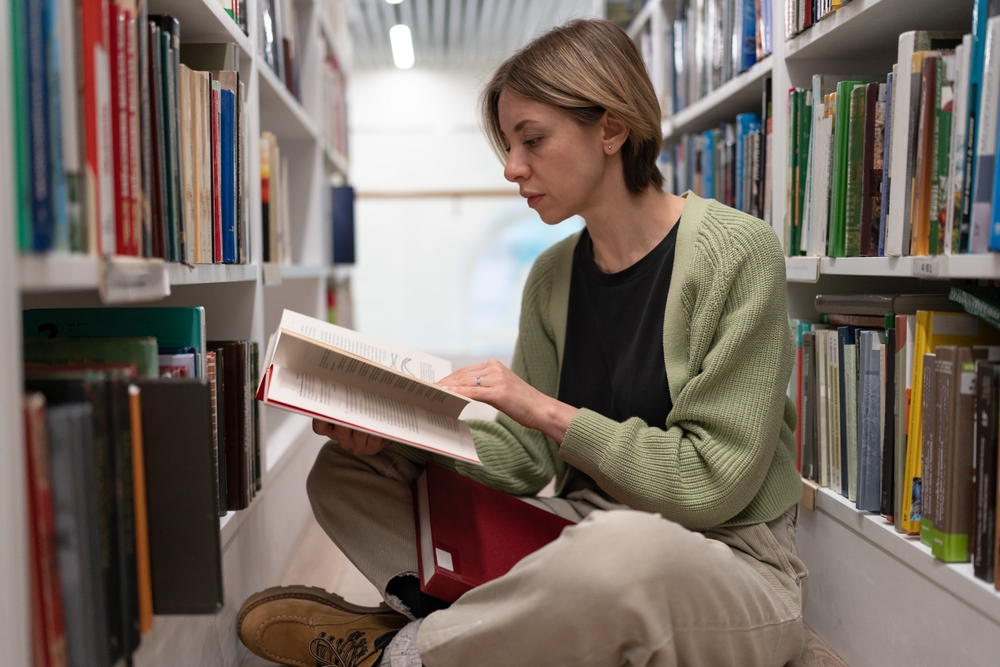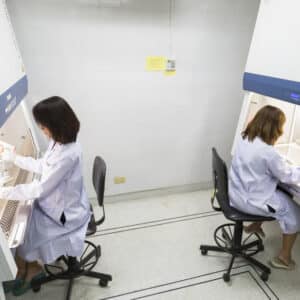The EUTERPE Consortium is looking for Eleven researchers to work on the Doctoral Training Network “EUTERPE: European Literatures and Gender from a Transnational Perspective”.
Applications are welcome from candidates with Master’s degrees, a demonstrable interest and experience in gender studies, English language skills, a willingness to undertake two months of guided internship with an EUTERPE Associate Partner that works on a field relevant to the Doctoral Candidate’s expertise, as well as a willingness to spend a period of 6 months on secondment during the second year of their tenure. EUTERPE proposes to train and supervise 11 Doctoral Candidates in interdisciplinary, transnational, gender focused literary studies.
Doctoral Candidate: EUTERPE: European Literatures and Gender from a Transnational Perspective
Doctoral Candidate 1
Host Institution/Recruiter: Central European University
Mobility Institution: University of Oviedo
WP 1: Transnational turn in literary studies: Looking from Central and Eastern Europe
Objectives: This individual research project belongs to the overarching research area Transnational women’s literature and its travels: points of entry and pathways, which brings together WP1 and WP2. In this framework ESR1 will engage with larger questions of transnational feminist literary theory with an aim to explore impacts of transnational turn upon methods of literary interpretation (narrative methods, close and distant reading, content analyses). The research will focus in particular on specific problems of traveling concepts and traveling theories; problems of studying identities in literary texts; questions of multilingualism and literary translations.
For details see separate job advert: https://euraxess.ec.europa.eu/jobs/857247
Doctoral Candidate 2
Host Institution/Recruiter: University of Oviedo
Mobility Institution: Central European University
WP 2: Mapping the “strangeness of Europe” in transnational women’s writing
Objectives: ESR2 will be researching the ways in which women’s writing in Europe, especially those following the routes of migration from Africa and the Caribbean (and, to a lesser extent Asia), produce transnational writing and offer an alternative, gendered and sometimes multilingual map of European cities and conviviality. Applying a framework adapted from postcolonial theory, gender studies and neo- cosmopolitan studies, and embracing the performative theories of literature as a world-making activity, the research will approach diasporic women’s texts and explore the extent to which migrants, refugees and “post-multicultural” writers may constitute today’s cosmopolitans and provide a “hinge” between national cultures and transnational perspectives (Sneja Gunew 2017). It will focus on how literatures produced in the territory of what Chris Rumford (2016) terms “the strangeness of Europe”, the multiple Europes in their “disconnected contiguity”, may create a new narrative of Europe and innovative genres and linguistic practices.
Applications will open soon
Doctoral Candidate 3
Host Institution/Recruiter: University of Bologna
Mobility Institution: University of York
WP 3: Narratives of connections and complicities in women’s transnational minor literary genres
Objectives: Employing a diachronic perspective, the researcher will investigate repetitive patterns in women’s transnational culture(s). Moving from this approach, he/she will take into consideration minor genres, which have often become for women and marginal subjects narratives of connections, complicities, negotiations, practices of resistance and changes. These narratives will enable geographies of identity transgressing the traditional boundaries (individual, national and collective). ESR3 will focus on minorities’ literatures, and hybrid genres such as utopia, dystopia, science fiction, and/as collective autobiography and intertextual connections between transnational women.
Applications will open soon
Doctoral Candidate 4
Host Institution/Recruiter: University of Bologna
Mobility Institution: University of Granada
WP 4: Transnational genres: genre/gender crossings in translation and creative practice
Objectives: ESR4 will select a diverse range of primary texts and transmedia works that cross borders between cultural discourses and cultures but also between genres, genders, and forms. This will be supported by the Centre for Utopian Studies and stakeholders, creative industries outside UNIBO, ERT-national theatre Emilia Romagna, and the Gender Bender Festival for visual art and dance.
Applications will open soon
Doctoral Candidate 5
Different application deadline: 17 November, 2022
Host Institution/Recruiter: University of Utrecht
Mobility Institution: Coventry University
WP 5: Moving perspective: the role of transnational literary intellectuals in shaping public debate around European belonging
Objectives: ESR5 will investigate the contribution of women-identified, transnational intellectuals and writers into shaping public reception and debate around European belonging and identification. The project will focus on transnational literature as multilingual literature informed by migrant and postcolonial experience. Through this lens, using literary methodology (reception analysis, discourse analysis, archival research methods, combinations of close and distant reading, comparative analysis) and drawing on feminist theory, intellectual history, postcolonial studies, migration literature, media studies and critical theory, ESR5 will cartograph the diverse literary production by established, but especially also minor transnational European writers based in the Netherlands, the UK and Italy. It will analyse how these works contribute to public debate, and how they operate across national borders, gender identities and languages in these three different contexts. Specifically, it will investigate through which media and public platforms (festivals, prizes, publishing industry) they impact, seeking to combine prominent and minor literary figures to assess the diversity of gendered transnational voices. How do these voices challenge geographical and temporal methodological nationalism and create a transnational and translocal sense of European belonging? How do they contribute to rewriting and expanding the European literary canon and to developing a new understanding of the politics of belonging in Europe?
For details see separate job advert:https://euraxess.ec.europa.eu/jobs/852460
Doctoral Candidate 6
Host Institution/Recruiter: University of Oviedo
Mobility Institution: University of Utrecht
WP 6: The role of transnational literatures in the decolonisation of understanding of gender within the European academe
Objectives: Drawing on interdisciplinary feminist methods and methodologies, including pedagogical and textual content analyses, curricula case studies, participant observation and semi-structured interviews with educators, students and transnational intellectuals in cross-European contexts, ESR6 will investigate the ways in which transnational literatures (including text, novels, poetry, play texts, digital literary media) have influenced processes of pedagogical decolonisation within the teaching of Women’s and Gender Studies. The research asks to what extent transnational intellectuals and literatures that challenge thinking about European gender identities have been deployed to develop, extend and decolonise theoretical frameworks for rethinking politics of identity within interdisciplinary gender studies.
Applications will open soon
Doctoral Candidate 7
Host Institution/Recruiter: University of Granada
Mobility Institution: University of Lodz
WP 7: Transnational literatures in the making: dialogues with film, social media, streaming platforms, performative arts and new literary genres
Objectives: ESR 7 will be researching on the ways in which transnational narratives (and experiences) resonate, interpelate or enter into dialogue with other discursive forms of expression such as film, performative arts, social media initiatives, streaming platforms, electronic literature or slam literature. This involves translations across literatures and these different media as well as across different national contexts. Such processes are partly enabled by the broad accessibility of different technologies of communication (including film, social media or streaming platforms) as well as new literary genres and literary experiments (electronic literature, slam literature). These socio-cultural transformations facilitate transnational circulation of literary narratives, or of the content of literature, often creatively reworking them in the process.
Applications will open soon
Doctoral Candidate 8
Host Institution/Recruiter: University of Lodz
Mobility Institution: University of Granada
WP 8: Intermedial diffusions: creative interfaces of transnational women’s literature and the arts
Objectives: The individual research project will focus on the inter- and transmedial diffusions of the experiences and narratives conveyed by the selected examples of transnational women’s literature and how these transformations are shaped by the shifts of national/cultural/social contexts. The special attention will be paid to the interfaces of literature and the arts. Taking a new materialist approach, the ESR9 will focus on the complex intra-action between the form and content, exploring how the change of the medium affects the content of the narrative and vice versa—how the narrative co-constitutes the operations of the medium. The research will focus on how—through trans- and intermediality—the selected narratives of transnational women’s literature reach out to and engage broader audiences, and how they are reshaped once placed in new situations of communications and new national locations. This will contribute to developing a more thorough reflection on European identities and how they are negotiated on everyday basis in and across different national contexts.
For details see separate job advert: https://euraxess.ec.europa.eu/jobs/857314
Doctoral Candidate 9
Host Institution/Recruiter: Central European University
Mobility Institution: University of Lodz
WP 1: Transnational turn in literary studies: Looking from Central and Eastern Europe
Objectives: ESR 9 will be researching on points of entry and pathways of transnational literature in the region of Central and Eastern Europe. A space where languages and literatures of numerous small nations traditionally coexisted and mixed in rich variety, CEE is an ideal laboratory to examine transnational encounters, transculturalism, questions of identity and border-crossing. The cultural specificities and symbolic significance of CEE as a specific cultural toponym in Europe have been widely addressed from the 1970s on. However, this scholarship is traditionally leaving out majority of women-identifies writers, being focused on canonical male authors. At the same time, the cultural position and the role of CEE in post-socialist times, and in particular in times of EU enlargement, with shifting geographic and symbolic borders, requires transnational perspective in addressing critically literary production in the region.
For details see separate job advert: https://euraxess.ec.europa.eu/jobs/857310
Doctoral Candidate 10
Host Institution/Recruiter: University of York
Mobility Institution: University of Bologna
WP 4: Transnational genres: genre/gender crossings in translation and creative practice
Objectives: ESR 10 (externally funded, recruited by partner YORK) will have three main objectives: 1. To build on Walkowitz’s notion of the “born-translated” novel and Preciado’s blending of gender and sexuality studies with migrant/multilingual literary studies in order to interrogate and reimagine the definition of translingual, border-crossing writing not merely as an aesthetic effect in transnational literatures but as a genre in its own right; 2. To deepen understandings of how multilingual and migrant writing shapes and is shaped by nuanced intersections of gender, language, culture, race, class, sexuality, and disability; 3. To experiment with practice-led research methods, using translation and various forms of creative practice (e.g. creative writing, performance, mixed-media artforms), alongside social science methods (e.g. interviews, focus groups), in order to develop innovative interdisciplinary methods for approaching border-crossing artworks that challenge and question existing conventions in literary scholarship. Externally funded ESR10 will select a diverse range of primary texts and mixed-media artworks that cross borders not only between languages and cultures but also between genres, genders, and form. They will be supported by YORK’s interdisciplinary expertise, networks, and facilities for the study and practice of social science and artistic research methods. Furthermore, the Department of English & Related Literature will provide networks and training in translation, creative writing, and the creative industries.
Applications will open soon
Doctoral Candidate 11
Host Institution/Recruiter: Coventry University
Mobility Institution: University of Utrecht
WP 6: The role of transnational literatures in the decolonisation of understanding of gender within the European academe
Objectives: Drawing on interdisciplinary feminist methods and methodologies, including pedagogical and textual content analyses, curricula case studies, participant observation and semi-structured interviews with educators, students and transnational intellectuals in cross-European contexts, externally funded ESR11 will investigate the ways in which transnational literatures (including text, novels, poetry, play texts, digital literary media) have influenced processes of pedagogical decolonisation within the teaching of Women’s and Gender Studies. The research asks to what extent transnational intellectuals and literatures that challenge thinking about European gender identities have been deployed to develop, extend and decolonise theoretical frameworks for rethinking politics of identity within interdisciplinary gender studies.
Applications will open soon
As a part of their research training, the EUTERPE DC will have the following duties:
-
Enroll as a PhD student in the PhD program with the Home/Recruiter University; fulfill all the requirements of the program and work towards the completion of their PhD thesis within the deadline set by the university.
-
Spend a compulsory secondment period of 6 months at the Host University, during the second year of their tenure. During this period they will receive further research training and will conduct comparative research.
-
Undertake two months of guided internship with an EUTERPE Associate Partner that works on a field relevant to the Doctoral Candidate’s expertise.
-
Work closely with their employability mentor in the development of a bespoke Employability Enhancement Plan.
-
Attend the project-wide training events, including 5 education events in the form of summer and spring schools.
-
Participate in the creation of the Dictionary of Transnational Women’s Literature in Europe, an open-source publication by CEU Press by researching material for the Dictionary and contribute to writing the entries.
-
Collectively with the other Doctoral Candidates participate in the EUTERPE Transnational Literary Research Laboratory creating the content of the Dictionary/Catalogue/Podcast Library following the Doctoral Candidate’s chosen track of contribution.
-
Participate in the EUTERPE Final conference and promotion of the Dictionary of Transnational Women’s Literature in Europe, the Digital Catalogue and Podcast Library in Vienna in the fall of 2026.
-
Contribute to the final project report in the summer of 2026.
HOW TO APPLY:
PLEASE NOTE each application package must be sent to the relevant email address of the specific recruiter institution as published in their job call. Application deadline: 15 December, 2022. (Please note that the University of Utrecht closes the application on 17 November, 2022).
The application package should include:
(1) filled out application form,
(2) application letter (not exceeding 500 words),
(3) CV,
(4) reference letters from 2 academic and 1 non-academic referees, submitted by the referees,
(5) 1000 word research proposal as required,
(6) an official English version or certified translation of your full master’s transcript (transcript = an official report supplied by a school on the record of an individual student, listing subjects studied and grades received), including an explanation of the grading system,
(7) an official English version or certified translation of your master’s diploma,
(8) proof of language proficiency according to the recruiting university’s requirements,
(9) (optional) an academic writing sample.
More Information












Comments